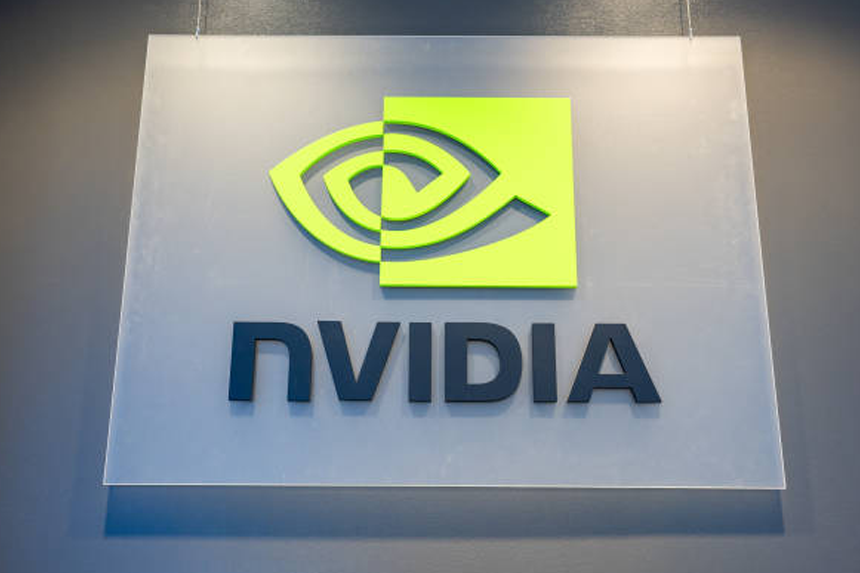As Nvidia export limitations affect AI chip industry development and supply chains globally, the realm of artificial intelligence (AI) and advanced computing is experiencing yet another significant change. The worldwide IT sector is being pushed to change as new U.S. government licensing requirements now restrict the sale of Nvidia’s high-performance H20 AI chips to China.
- Why do Nvidia export restrictions affect the artificial intelligence chip market?
- How will the Nvidia export restrictions affect the market for artificial intelligence chips for multinational technology companies?
- Forecasts for the AI Chip Supply Chain: What Are Industry Experts Saying
- What should companies do as Nvidia's export restrictions affect the market for artificial intelligence chips?
- Given export restrictions, will the global AI chip market fully decouple?
- Finally, preparing for an AI-driven future.
These fresh export restrictions reflect more than just another round in the continuous trade conflict between China and the United States. They draw attention to a more general conflict for leadership in next-generation technologies. Originally mostly known for creating graphics cards for gamers, Nvidia has become a major participant in cloud computing solutions and artificial intelligence chip development. Today, the corporation finds itself in the heart of a global chess game.
Why do Nvidia export restrictions affect the artificial intelligence chip market?
Concerns about national security led U.S. officials to propose new licensing requirements. They think the sophisticated features of Nvidia’s H20 chips might improve artificial intelligence research connected with military developments and increase China’s supercomputing systems. The U.S. government moved quickly to create limitations to stop this innovative technology from proliferating.
These export restrictions always apply. Therefore, Nvidia has to get specific licenses before delivering artificial intelligence chips to clients in China, including Hong Kong. This abrupt legislative change throws off Nvidia’s income stream and creates concern throughout the semiconductor industry. Chinese corporations might be compelled to hasten the creation of domestic substitutes for these AI chips to keep their aspirations for artificial intelligence.
Furthermore, the fact that Nvidia’s export limits directly emphasises the essential role semiconductors now play in the world economy, security, and innovation.
How will the Nvidia export restrictions affect the market for artificial intelligence chips for multinational technology companies?
The immediate financial impact of the new rules is shown by Nvidia’s announcement that it will incur a $5.5 billion charge linked to unsold H20 processors and exceptional purchase obligations. Still, the broader effects on the worldwide technological economy go beyond Nvidia’s profit margins.
Artificial intelligence chips are crucial for data centres, driverless cars, advanced robotics, cloud computing, and the continuous explosion of AI-driven software solutions. Any restrictions on the availability or distribution of these chips slow development cycles and inhibit advancement for technology companies worldwide.
Furthermore, Nvidia’s export limitations affect the market for artificial intelligence chips, indicating a future in which companies must consider supply chain interdependence. While the U.S. and other international players may vary their sourcing strategy to guard against regulatory shocks, Chinese businesses are expected to drive aggressively to develop indigenous chips to close the gap.
Forecasts for the AI Chip Supply Chain: What Are Industry Experts Saying
Although there is a $5.5 billion inventory hit, industry analysts usually think Nvidia is financially robust enough to resist the disturbance. Geopolitically, though, the consequences are significantly more complicated. Though there are no certainties of a rollback very soon, these limitations could be part of a more general geopolitical agreement between the United States and China.
One analyst said, “Although the financial value is noteworthy, this situation might allow for future changes or exemptions. The more important issue is how such policies could force nations to create different semiconductor ecosystems.”
Companies worldwide closely observe how Nvidia’s export limits affect access to AI chips. With every regulation change, the likelihood of a completely “decoupled” IT ecosystem, where China and the United States rely on their hardware, grows.
What should companies do as Nvidia's export restrictions affect the market for artificial intelligence chips?
Technology companies that are dependent on artificial intelligence chips to run their products or services must now be proactive in their planning. Resilience should be included in supply chains; it is no longer optional. Businesses must find other suppliers, stockpile key parts, and keep open contact lines with their hardware providers.
One also has to keep ahead of policy changes. Companies that react fast to changing trade rules will prevent expensive delays and production interruptions, guaranteeing their competitiveness even if Nvidia export limitations affect the confidence and access to AI chips.
Furthermore, Chinese companies’ increased domestic research and development can finally lead to new rivals in the artificial intelligence market. Western businesses must focus primarily on intellectual property protections, strategic alliances, and creativity to keep their edge.
Given export restrictions, will the global AI chip market fully decouple?
Whether the computer industry will break into two parallel ecosystems—one based on U.S.-made chips and the other fueled by Chinese innovation—is among today’s most critical problems. Several experts believe this situation is becoming more likely, particularly given ongoing trade restrictions.
The concept that Nvidia export limitations affect the structure of AI chips emphasises the long-term risk of divided worldwide cooperation even more. While some sectors will adjust with different suppliers, others could find replacing highly specialised AI chips like Nvidia’s H20 difficult.
This fragmentation might affect everything from software design criteria to cloud infrastructure, forcing companies and developers to decide which ecosystems to support.
Finally, preparing for an AI-driven future.
Nvidia export restrictions affect AI chip market expansion and worldwide cooperation, raising strategic and financial issues in a society driven more by artificial intelligence. Tech firms must remain educated, adaptable, and ready to react to regulatory changes.
The changing scene of artificial intelligence chip access and trade policies emphasises the requirement of constant cooperation, creativity, and resilience. The future belongs to companies that can foresee change and act forcefully regardless of how limitations soften or tighten.
The message is evident for corporate executives, legislators, and technology investors: the game’s rules are changing, and maintaining competitiveness will require more than technological excellence. It will require worldwide awareness, operational adaptability, and a dedication to proactive risk control.







